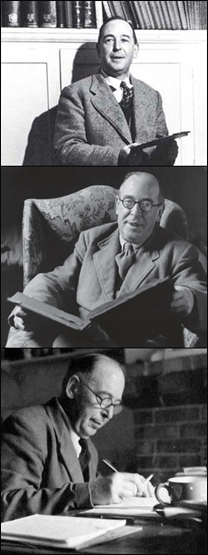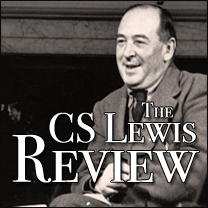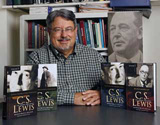
The Allure of Gentleness: Apologetics in the Manner of Jesus by Dallas Willard.
June 3rd, 2015 | Skip to comments
The Allure of Gentleness: Apologetics in the Manner of Jesus by Dallas Willard. HarperOne, 2015. 208 pp.
Reviewed by J.M. Hawthorne
Dallas Willard’s posthumously published book, The Allure of Gentleness, is an invitation to see the world through the eyes of a man filled with kindness and love, and to help others with their doubts in that spirit of gentle love.
The honest warmth of Willard’s voice is retained from his transcribed lectures, from which the core of this material is extracted. Indeed, it still radiates through the pages. And I felt personally the love that he extended as he modeled the role of apologetics as a helping activity to encounter the Christ we proclaim—consistent with the work and character of Christ himself.
In this respect, Willard teaches an apologetics that never loses sight of the person and presence of Jesus Christ—after all, our goal is always to know Jesus more deeply and literally living out of his life. Willard says that
When we’ve got those factors in place, the importance of ideas and the role of discipleship (being a student in that all-important realm of ideas), then we’re ready to think about the New Testament ministry of apologetics (22).
Here it is primary that we are bringing Jesus WITH us, we are disciples, into ideas. Without Him, we may not see the truth sufficiently, nor are we safe to dispense that truth to others. I believe that the contribution Allure offers the body of Christ is equipping to be with Jesus as they approach both truth and people with authority, intelligence, and grace in order to help people understand the barriers to knowing God better.
Before I clarify what I mean by each of these frames (grace, authority, and intelligence), I think we must consider what Willard does not do.
Willard does not crank out arguments to crush Christ-deniers in some sort of ideological “cage match” that is the bloodsport of a few immature Christians. Although most of the apologists I have met do not do this either, the idea of the combative apologist who argues against people for the joy of the “smackdown” is a real worry—I know. (I think I was that guy for a little while.) However, Willard is not that guy, and his character is such that I cannot imagine that he could lead someone in that combative direction—caring character, not crushing caricature.
Also, Willard’s approach anticipates and prevents that problem because he prioritizes the gentle manner of Jesus. It is Jesus’s manner that keeps Willard’s words in harmony with the originating desire to assist people in overcoming barriers to their faith with Jesus and enter the way of Jesus—collaborative not combative.
Lastly, Willard does not employ a strictly negative approach to apologetics often implied by the definition as a “defense of the Christian faith.” Willard defines apologetics in Chapter One this way:
Apologetics is a New Testament ministry that uses thinking and reasoning, in reliance on the Holy Spirit, to assist earnest inquirers in relinquishing disbelief and mistrust in God and God’s good purposes for humankind (9).
Notice the narrative that “earnest inquirers” evokes. The story we are invited into is one where God is reaching out to people who are drawn to Him through questions that can be intelligently addressed by people who rely on Him and assist in removing barriers to intimacy with God. Willard puts it positively:
I’m not here to defend the Christian faith; the Christian faith defends me. I’m here to help people wherever I am (48).
The point is, the story Willard offers us is not the story of making nonChristians feel “wrong” and “win” their view over to the “right” side. Nor does he encourage cold robotic argumentation over person-centered relational reasoning.
So let’s get a better feel for this as we look more closely at what he does do.
First, Willard does apologetics with grace. Grace is “right,” but not the other way around. You are not saved because you are right, but right because you are saved. Willard insists we keep things in this order to stay in line with the logic of grace. He continues,
Not many people want to go to ‘Right Church,’ but we’ll gladly go to ‘Grace Church.’ I’ve been to Right Church–you may have been there too it’s a tough place. There are a lot of dead people at Right Church, because life comes by grace (46).
This is not to say that Willard is opposed to strong stances regarding the Christian faith, but he sees no need to make apologetic work a “defense” because being defensive sabotages the work. There is no need to self vindicate, “for Christ has already vindicated” (48). The win-arguments attitude is likely to become intellectual bullying, which neither takes a person seriously, nor positions one to be helpful to the person you are supposedly listening to. In other words, Willard guides us to a place where we can see that the medium must match the message—we must speak the love of God lovingly.
Second, Willard does apologetics with authority. By authority, I mean that he does not seem to teach truths that are removed from his lived life, but things that God has worked into his life by His power. Deeply woven through Allure are the thoughts of Willard’s other teachings on discipleship, and foundational to everything is this interactive relationship with God. He drives us deeper into the search by asking us to take God’s promises seriously. Chapter Seven is explicitly about this idea.
For example, he challenges us to meditate on Psalm 23, asking us to stop along each couple of verses, and ask “So now you have that in your head, but what is in your heart and in your life?” (158). He speaks from experience of the presence of God in his daily life and challenges us to not settle for less our selves, especially if we are going to help someone else’s interaction with God.
This is the ultimate apologetic: lives interacting with God. Willard asserts, “People need to see individuals living in daily interaction with the kingdom of the heavens: praying and saying. If you really want to attack doubt, what we have to attack is our own hesitancy to step up” (167). Part of his method is get people to TRY something with God, based in part on sufficient evidence, especially from the example of our lives.
And our lives ought to have a quality about them only explainable by something more than we could do ourselves. Why is he so confident that God will meet people if they try something? Because he has done it himself. In short, Willard says we need to BE the burning bush, and he speaks radiant words with a warm crackle in his voice.
Third, Willard does apologetics intelligently. In one sense every decent apologetics book helps us communicate reasons for Christianity and reveals the inadequacies of opposing views that may prevent a deeper faith in Christ. However, Willard integrates sound communication practices making his approach emotionally intelligent too. He elaborates on the role of reason under grace, and he does so with examples and questions that seem to incarnate the ideas by connecting them to our experiences.
By way of illustration, consider Willard’s method in Chapter Four on faith and reason. First, He lays the foundation by framing the integration of faith and reason in the context of the submission of our faculties to God. And even here the gentleness of God invites us place our faculty of reason under His leadership because “God is not going to force this on us or do it to us.”
Then, Willard subversively tackles anti-intellectualism, not by opposing it head on, which would create defensiveness in spirit of the person with whom we are in dialogue. Rather, Willard has us imagine the church relinquishing reason to the Devil with the words “We’ll just believe, and you can have reason.” He describes vague guilt and uneasiness about reason, by people who want to follow Jesus.
Willard invites us to look at Jesus and the Apostles and their use of reason submitted to the Holy Spirit. For instance he challenges the reader to analyze Acts 2:7-36, where we will see that “the Holy Spirit was guiding him [Peter] to reason well. And reasoning well under the direction of the Holy Spirit drove a shaft of truth into the hearts of those who heard Peter.”
So, rather than feeling guilt or lack of piety for the desire to reason, the reader is invited to join Jesus and the apostles as they allow the Spirit of God to use their reason to touch the hearts of others with the truth.
Moreover, as Willard continues to explain how beliefs work, he invites us to ask diagnostic questions that reveal the actual state of our relationship with God.
If you want to know whether you truly believe in God, you have to ask yourself what you really trust. This includes when you get up in the morning, when you deal with problems in your family, and when you deal with your business or your church. Many folks who profess to believe in God, act from disbelief. They may believe that Jesus died for their sins and when they die they will go where he is, but as far as an operational belief in God here and now, they don’t have one (62).
Notice, Willard places us in the context of our ordinary everyday lives and asks us to look for where we actually count on God. He wants us to know God, and understand rationally, but will not let it be merely rational.
But, I believe where Willard keeps us safely on the proper side of the “rationality road” is in vigilantly preventing us from making “reason” a tool that gives us oppressive power over nature and our fellow man.
Here he reminds us of C. S. Lewis’ The Abolition of Man as “a beautiful statement of what happens when humanity regards itself as being in the drivers seat. We inevitably come to the place where, in order to dominate nature, we have to dominate. . . humanity” (63). Willard’s connection to Lewis here is apt, because Lewis’ concern in Abolition of Man is that the loss of objective value, morality, natural law, and connection to truth will ultimately dehumanize humanity. Willard, like Lewis, strongly encourages reason, but does so in a way the discourages us from being rationalists.
As I conclude this review, you should know that I have barely scratched its surface. Allure knits together wrinkles in my understanding which I have not time to express now: such as the problem of pain, ways to graciously begin to reason with someone who is seeking God that God indeed exists, and/or some helpful thoughts about why God is not more obvious.
However, you need not fear becoming an argumentative, unpleasant person because Willard has written an excellent book that is truly instructive to begin to see how Jesus might share about knowing and interacting with God if He were in our shoes.
J. M. Hawthorne received his M.A. in Philosophy of Religion and Ethics from Biola University in Los Angeles, CA. He, his wife, and 3 children live in Columbus, Ohio.





Comments
No comments yet.
RSS feed for comments on this post.
Sorry, the comment form is closed at this time.